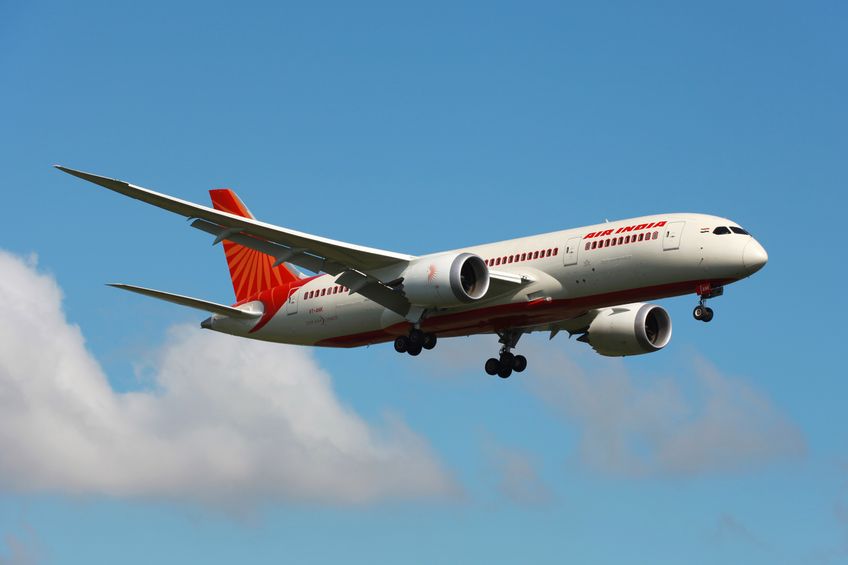The airline that can’t rid itself of rats on its planes can’t negotiate when purchasing planes, either.
Facing frequent technical problems in its Dreamliner fleet, Air India has found itself in a spot as absence of contractual provisions is hindering the national carrier’s efforts to get financial compensation from aircraft maker Boeing.
They’ve had to ground their Boeing 787s multiple times, and incurred losses as a result, but “There is no provision for (financial) compensation with respect to technical problems in Dreamliner under the agreement signed with Boeing.”

Air India Boeing 787
Air India also has to accept Boeing 777 aircraft that they do not want.
[T]he Government-run airline has also been forced to take the delivery of three B 777-300ER planes, which it wanted to cancel earlier due to the absence of ‘cancellation’ clause in the purchase agreement with the US aircraft maker.
It’s possible of course that Air India was a shrewd negotiator, and simply bet wrong on what provisions they’d value most in the future at the time of negotiation. They could have given up warranty or cancellation provisions for lower price, believing they wouldn’t need either.
I’m not sure how much the contract actually matters here though. Contract language matters in two dimensions:
- Persuasion. People argue over what’s due to them and gain sympathy being able to point to language of what was actually agreed to.
- Legal recourse. The language ultimately matters most if you sue, but the vast majority of contract disputes don’t wind up in court (or arbitration).
Whether or not Air India negotiated the ability to get compensation for technical problems with their Boeing 787s (maybe they should have paid with an American Express card or Citi Prestige for the purchase protection), and whether or not they included language letting them cancel an order or a Boeing 777, all they’ve given up is the ability to prevail in court.
Ultimately they could renege and the state-owned carrier might suffer reputationally, but even low reputation states are able to secure purchase of aircraft and even financing.
Air India still has leverage in the form of its future orders. Air India’s widebody fleet is all-Boeing. Boeing wants to keep it that way.
So leverage simply needs to take the place of persuasion. But if you’re such a bad negotiator you don’t stick provisions into a sales agreement to protect yourself in the future in the event of changing circumstances or against defective product, you’re probably also not a good enough negotiator to effectively leverage a multinational corporation.
Air India, of course, doesn’t have much leverage over its pilots, over its passegners, or even over its retired aircraft either.


Gary,
The story is much bigger than only poor negotiations….see this for a detailed look. http://www.caravanmagazine.in/reportage/tailspin
Gary makes pretty clear in the post that the issue here is not — could not be – just poor negotiating because they clearly have leverage. He’s maybe being a little more subtle than usual here, but the point seems to be there’s a problem at Air India that’s not what the article says.
Air India has plenty of leverage over Boeing given that the govt of India is one of the largest buyers of defense equipment from the US.
Boeing has benefitted significantly from India’s purchases of its C17s, P8Is, etc. And given that India is currently bidding for a $8.2 billion order on fighter jets, Boeing will do anything to placate the govt of India.
I tried to buy a 787 with my Citi prestige, but citibank declined the $120,000,000 transaction because it was over my credit limit. Oh well.
Undoubtedly Pradul Patels 12000 sq ft apartment in Peddar Road, an area where purchase costs regularly exceed $1500 a sq ft was purchased using his goverment salary